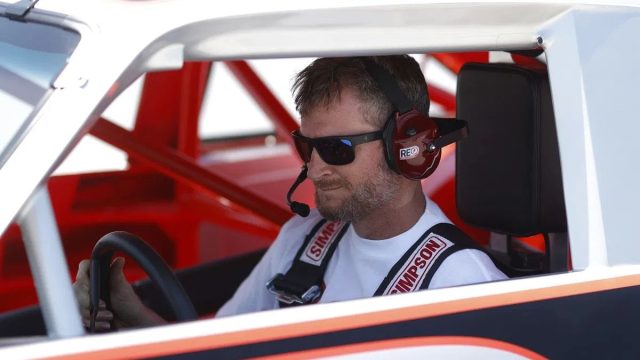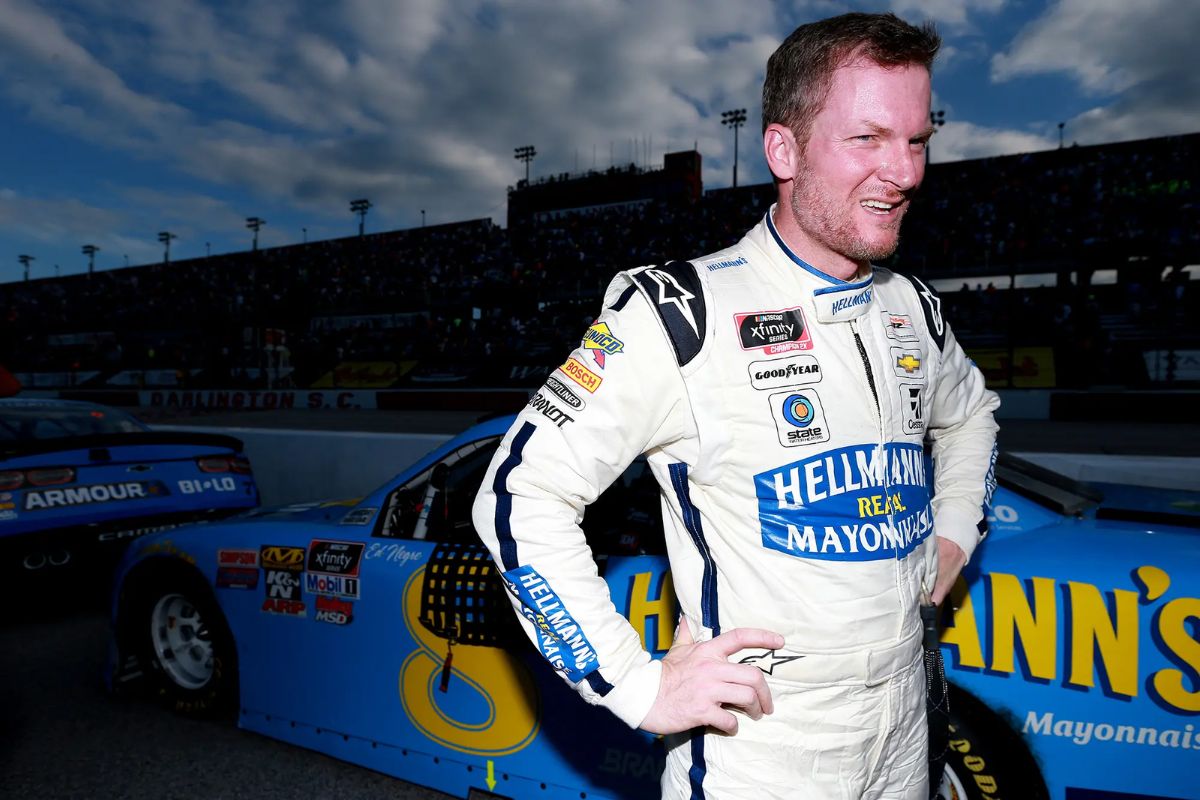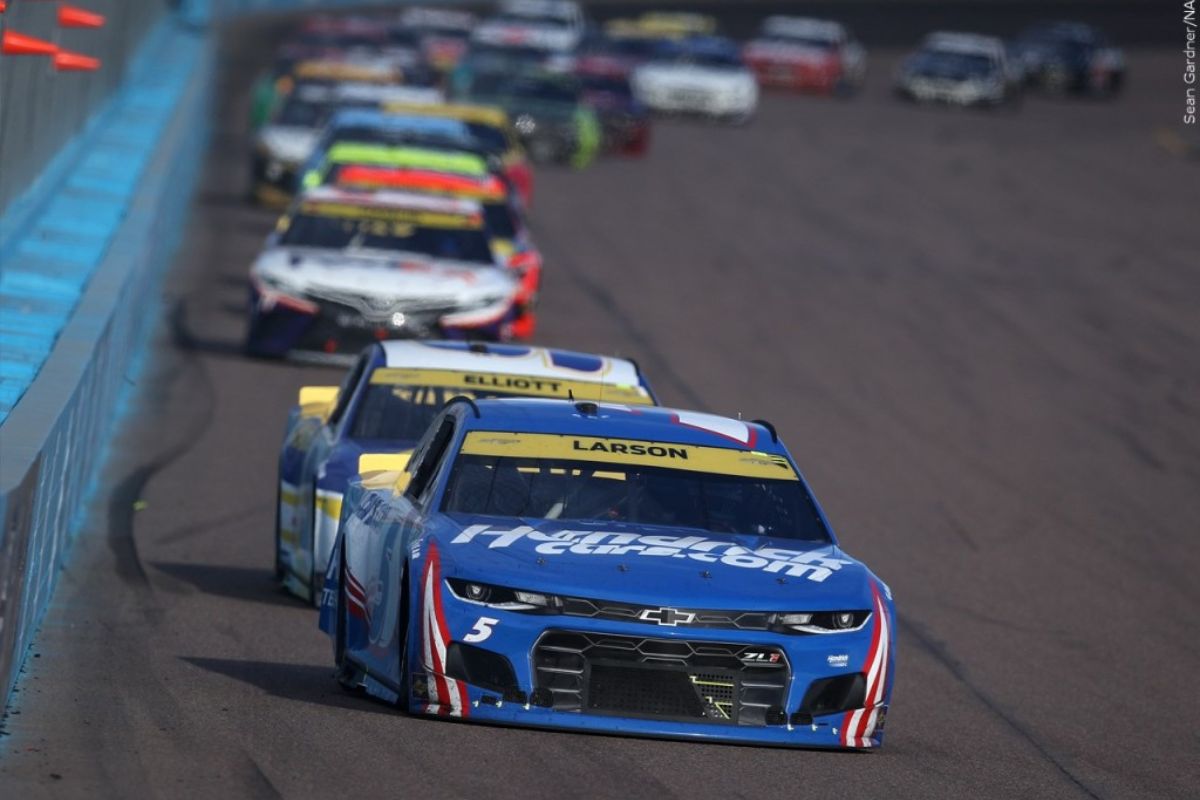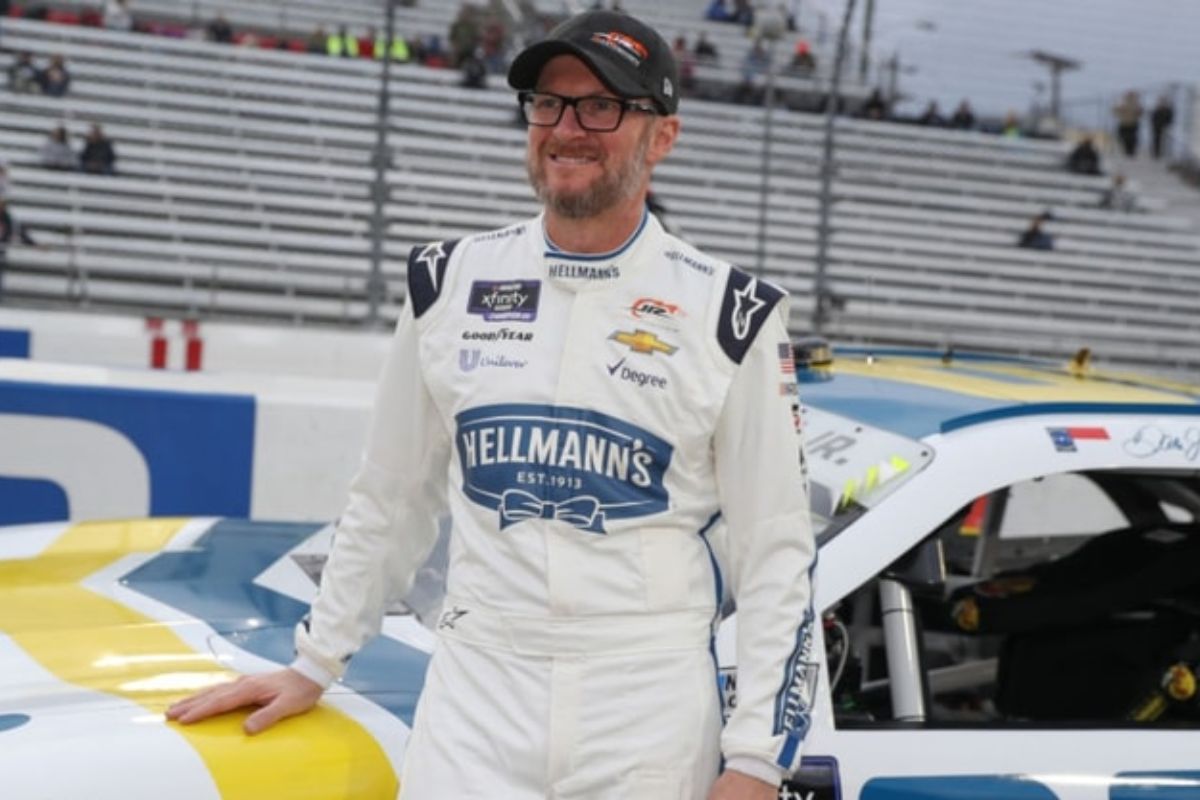Dale Jr. Opens Up About His Cup Series Struggles: Dale Earnhardt Jr.‘s recent admission of immaturity during his Cup Series career invites a deeper examination of the personal and professional challenges that shaped his path. His frank reflection on prioritizing social engagements over rigorous training raises critical questions about the balance between personal life and professional commitment in high-stakes sports. Additionally, contrasting his experiences with the disciplined approaches of contemporaries like Jimmie Johnson reveals a broader narrative about the attributes that define champion drivers. What implications does this self-awareness have for understanding the evolution of a racing icon and the lessons that extend beyond the track?
Key Highlights
- Dale Jr. acknowledges that immaturity during critical racing moments hindered his performance in the Cup Series.
- He reflects on missed opportunities, particularly in 2004, due to fragmented focus on social activities.
- The contrast between his mindset and that of champions like Jimmie Johnson highlights the need for discipline in racing.
- He emphasizes personal responsibility for racing incidents, recognizing past mistakes affected his career trajectory.
- Dale Jr. believes emotional growth and mental resilience are essential for success in the competitive environment of NASCAR.
Dale Earnhardt Jr.’s Career Achievements and Regret
Dale Earnhardt Jr. stands as one of the most celebrated figures in NASCAR history, with a remarkable tally of 26 Cup Series victories and 15 Most Popular Driver awards that highlight his impact on the sport. His career not only presents a commitment to excellence but also reflects the complexities of competing at the highest levels of motorsport.
As the proud owner of a championship-winning Xfinity team, Earnhardt’s influence extends beyond his driving career, shaping the future of NASCAR and nurturing emerging talent.
Despite these commendable accomplishments, a regret lingers in Earnhardt’s reflections: the absence of a NASCAR Cup championship. This title, often seen as the pinnacle of success within the sport, eluded him, primarily due to unforeseen rule changes, on-track incidents, and the formidable competition he faced.
While external factors played a role, Earnhardt has openly acknowledged his own shortcomings as a driver, attributing part of this gap to a lack of maturity during critical moments in his career.
This combination of success and unfulfilled aspiration paints a complex portrait of Earnhardt Jr. While he remains a beloved figure among fans and peers similarly, his path serves as a reminder of the relentless pursuit of perfection that defines elite athletes.
Dale Earnhardt Jr. Draws the Spotlight on Himself
While many athletes may deflect attention from their personal shortcomings, Dale Earnhardt Jr. has chosen a different path by openly confronting his own past mistakes and the impact they had on his pursuit of a Cup Series championship.
This openness not only speaks volumes about his character but also serves as a poignant reminder of the complexities inherent in high-stakes competition. His reflections reveal a depth of understanding about the interplay between skill, strategy, and emotional maturity.
Earnhardt’s acknowledgment of his immaturity during critical moments in his career highlights a broader narrative in sports: the evolution of an athlete. He specifically points to crucial races in 2015 where he won 6 races, where decisions and circumstances collided, leading to missed opportunities.
His introspection highlights several key factors:
- Self-Responsibility: Acknowledging his role in racing incidents, Earnhardt emphasizes the importance of personal accountability.
- Emotional Growth: The progression from a young competitor to a seasoned veteran exemplifies the necessity of mental resilience in achieving success.
- Strategic Adaptation: Understanding that racing is not solely about winning but also about maneuvering through complex scenarios effectively.
Reflection on Missed Opportunities and Mindset
The complexities of racing are often mirrored in the mindset of the driver, and Dale Earnhardt Jr.’s reflections on his career provide a compelling case study of how psychological factors can shape performance. Earnhardt Jr. openly identifies a vital missed opportunity during his peak years, particularly in 2004, when a relaxed approach to racing overshadowed his potential for greater success.
Despite clinching victories such as the Daytona 500 and the Talladega race in 2004, he acknowledges that his focus was fragmented, prioritizing social engagements over relentless pursuit of excellence.
“I would totally go back and do a lot of it, in terms of the whole season, I wasn’t mature enough to really understand how. Maybe if I had done it a little differently…I was just racing to win…Carl turned me down to back at the straightaway in Atlanta. But I feel complicit in that. I feel a little responsibility to be a little smarter in that scenario, to not get us wrecked there.” -(dale jr.)
This introspection reveals the tension between friendship and competition, illustrating how a driver’s mentality can greatly influence outcomes on the track.
“Had I had a better mindset instead of thinking about hanging out with my buddies every Wednesday or Tuesday night and making that as much of a priority as the racing, ’cause it was in 2004…had I been more Jimmie Johnson-esque, just like hammer down and race race race every day, it might have been a different result, who knows?”-(dale jr.)
The commitment to a singular goal, as presented by Jimmie Johnson’s tireless dedication, highlights the importance of prioritizing a racing-centric lifestyle.
Earnhardt Jr.’s reflections serve as a vital reminder that success in NASCAR requires more than just talent; it necessitates a steadfast commitment to the craft. His retrospective acknowledgment of these missteps emphasizes the intricate interplay between mindset and performance, urging both current and aspiring drivers to cultivate resilience and focus.
Ultimately, his path highlights the potential for growth that lies within self-awareness and the willingness to accept a more disciplined approach in pursuit of racing excellence.
Dale Jr.’s Leniency During Controversies
In the high-octane world of NASCAR, controversies often ignite fierce rivalries and emotional responses, yet Dale Earnhardt Jr. has consistently exhibited a remarkable capacity for restraint in the face of adversity. His measured approach not only reflects maturity but also a tactical mindset that prioritizes long-term goals over momentary gratification.
Following a series of setbacks that included a dramatic encounter with Carl Edwards at Charlotte Motor Speedway, Earnhardt Jr. chose not to retaliate. Instead, he focused on the bigger picture, articulating a philosophy that emphasized victory over vengeance.
“A lot of people want me to go wreck Carl. I’m not going to do that, because if I’m trying to wreck Carl, I’m not winning Kansas, I’m not winning Talladega. You can’t go chase after a guy and put him out of the race and accomplish what your goals are. Our goals are to go to those races and win, that’s what we’re going to do.” -(dale jr.)
This mindset can be distilled into several key principles:
- Long-Term Vision: Earnhardt Jr. recognizes that chasing revenge can derail his broader ambitions in the sport.
- Emotional Control: His ability to remain composed amid heated controversies distinguishes him from contemporaries who often succumb to impulsive reactions.
- Tactical Focus: By prioritizing wins at upcoming races over personal vendettas, he exemplifies a mature understanding of NASCAR’s competitive landscape.
Dale Jr.’s refusal to engage in destructive rivalries, even when provoked, speaks volumes about his character and professional integrity.
In a sport ripe with emotional volatility, his leniency serves as a powerful reminder that true strength lies in self-discipline and a clear vision for success. Rather than being swept away by the chaos that often envelops NASCAR, he remains steadfast, crafting a legacy that prioritizes excellence over enmity.
Dale Jr.’s Championship Hopes and Legacy
Amid the backdrop of his measured response to controversies, Dale Earnhardt Jr.’s championship aspirations remain a focal point of his career narrative. Despite the challenges and setbacks that have punctuated his expedition, including critical missteps that thwarted his championship bids, his resilience and talent shone brightly in moments like his victory at Phoenix. This win, although bittersweet in the context of a championship, illustrated his capability to compete at the highest level, reinforcing the notion that success in racing is multifaceted and often elusive.
Dale Jr.’s legacy transcends the elusive championship trophy. His genuine connection with fans, highlighted by his approachable demeanor and openness about his struggles, has solidified his status as a beloved figure in NASCAR. While championships serve as markers of success, they do not encapsulate the entirety of his contributions to the sport. His ability to inspire and engage with a diverse audience has arguably become one of his most notable legacies.
As he reflects on his career, Dale Jr. acknowledges the maturation process that has shaped him into the person and driver he is today. This evolution adds depth to his narrative, suggesting that the pursuit of greatness is not solely measured by wins but also by personal growth and influence.
Therefore, while championship hopes may linger in the background, it is his enduring impact on the sport and its fans that will ultimately define Dale Earnhardt Jr.’s legacy.
News in Brief: Dale Jr. Opens Up About His Cup Series Struggles
Dale Earnhardt Jr.’s frank reflection on his Cup Series career emphasizes the critical interplay between maturity and performance in high-stakes environments. Acknowledging a tendency to prioritize social interactions over skill development reveals the complexities of personal growth within competitive sports. The contrast with disciplined champions highlights the necessity of emotional resilience and responsibility.
Ultimately, Earnhardt Jr.’s insights not only contribute to a deeper understanding of his legacy but also serve as valuable lessons for aspiring athletes steering through similar challenges.




